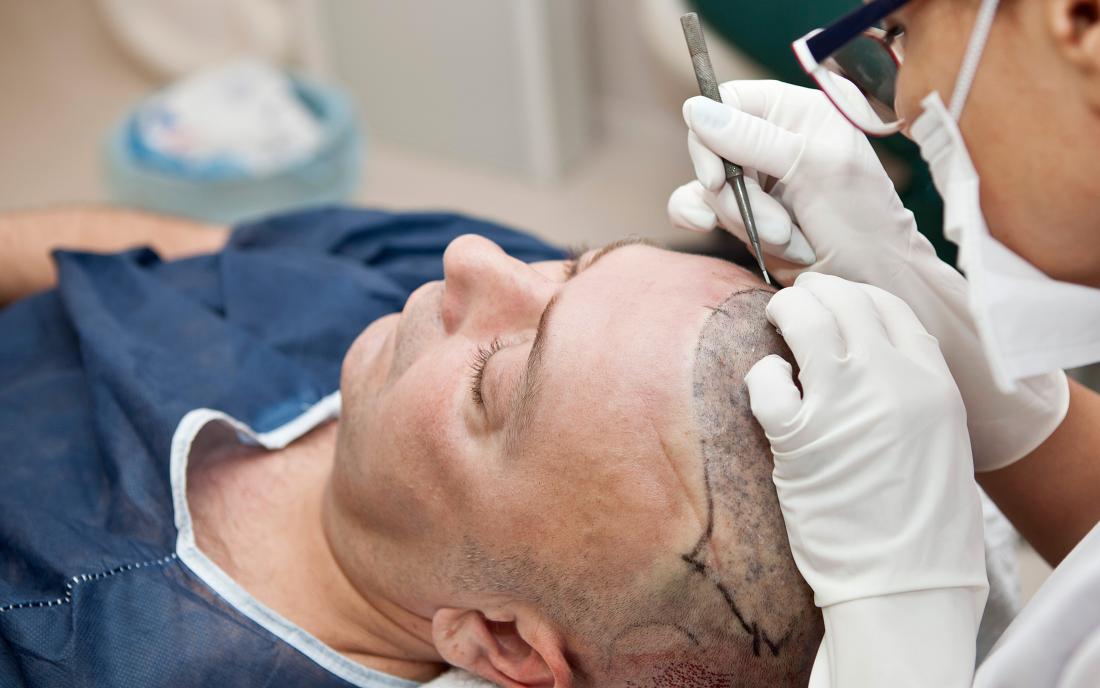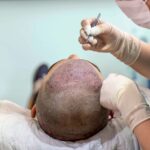If you’re considering this treatment, research thoroughly, consult trusted professionals, and weigh the benefits against the risks. A successful hair transplant can restore not just your hair but also your confidence. Hair loss can be a distressing experience, affecting confidence and self-esteem. For those considering a Hair Transplant in Dubai, safety is often the top concern. With advanced medical technologies and skilled professionals, the procedure has become increasingly reliable. But how safe is it really? Let’s explore the facts, risks, and benefits to help you make an informed decision.
Understanding Hair Transplant Surgery
A hair transplant is a surgical procedure that moves hair follicles from a dense area (usually the back or sides of the scalp) to thinning or balding regions. The two most common techniques are:
Follicular Unit Transplantation (FUT)
-
A strip of skin with hair is removed from the donor area.
-
Follicles are then separated and transplanted.
-
Leaves a linear scar, but is effective for large areas.
Follicular Unit Extraction (FUE)
-
Individual hair follicles are extracted directly from the scalp.
-
No linear scar—only tiny dot-like marks.
-
Preferred for shorter haircuts and minimal downtime.
Both methods are widely practiced in Dubai, known for its high medical standards and cutting-edge clinics.

How Safe Is Hair Transplant Surgery?
When performed by qualified professionals, Hair Transplant is generally safe. However, like any surgical procedure, it carries some risks. Here’s what you should know:
Common Risks and Side Effects
-
Temporary swelling or redness – Usually subsides within a few days.
-
Minor bleeding or crusting – Normal post-surgery and heals quickly.
-
Numbness or itching – Typically temporary as nerves heal.
-
Infection – Rare but possible if post-op care isn’t followed.
Serious Complications (Very Rare)
-
Unnatural-looking results – If grafts are placed incorrectly.
-
Scarring – More noticeable with FUT; FUE leaves minimal marks.
-
Cysts or ingrown hairs – Can occur but are treatable.
The good news? Most complications are avoidable with proper technique and aftercare.
Why Dubai Is a Leading Destination for Hair Transplants
Dubai has emerged as a global hub for medical tourism, including hair restoration. Here’s why many choose Hair Transplant:
Advanced Technology
-
Clinics use robotic FUE, ARTAS, and other high-precision tools.
-
Minimally invasive techniques ensure faster recovery.
Highly Skilled Specialists
-
Surgeons in Dubai undergo rigorous training and international certifications.
-
Many have years of experience in hair restoration.
Strict Medical Regulations
-
The Dubai Health Authority (DHA) ensures clinics meet global safety standards.
-
Hygiene and patient care protocols are strictly enforced.
Tourism-Friendly Recovery
-
Patients can combine the procedure with a relaxing stay in luxury accommodations.
-
The city’s world-class facilities make recovery comfortable.
Who Is a Good Candidate for a Hair Transplant?
Not everyone experiencing hair loss is an ideal candidate. The best results are seen in those with:
-
Stable donor area – Enough healthy follicles for extraction.
-
Realistic expectations – Understands that results take time.
-
Good overall health – No conditions that impair healing.
A consultation with a specialist can determine if Hair Transplant is right for you.
Recovery and Aftercare Tips
Proper aftercare ensures optimal results and minimizes risks. Here’s what to expect:
First Week Post-Surgery
-
Avoid touching or scratching the treated area.
-
Sleep with your head elevated to reduce swelling.
-
Follow prescribed medications to prevent infection.
Long-Term Care
-
Protect your scalp from direct sun exposure.
-
Use gentle shampoos as recommended.
-
Be patient—new hair growth starts after 3-6 months.
FAQ’s
Is hair transplant surgery safe?
Yes, hair transplant surgery is generally safe when performed by a qualified and experienced surgeon in a sterile medical setting.
What are the risks of a hair transplant?
Common risks include minor swelling, bleeding, infection, or temporary numbness, but serious complications are rare.
Is hair transplant surgery painful?
The procedure is typically done under local anesthesia, so patients feel minimal to no pain during surgery.
How long is the recovery after a hair transplant?
Most patients can return to work within a few days, with full healing and hair growth occurring over several months.
Are the results of a hair transplant permanent?
Yes, transplanted hair is usually permanent, as it’s taken from areas resistant to hair loss.
Can anyone undergo a hair transplant?
Not everyone is a suitable candidate. A consultation is needed to assess hair loss pattern, donor hair availability, and overall health.
How do I ensure a safe hair transplant?
Choose a licensed, experienced surgeon and a certified clinic with good hygiene practices and patient reviews.
Final Thoughts
For many, a Hair Transplant is a life-changing decision. With high success rates, advanced technology, and expert care, the procedure is safer than ever. However, choosing the right clinic and following post-op instructions are key to avoiding complications.

